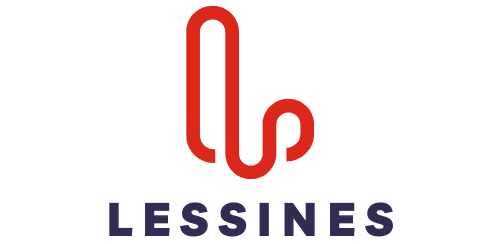What Is the Role of Nutritional Supplementation in Enhancing Muscle Mass in Bodybuilders?

If you’re passionate about bodybuilding, you have already considered the role of supplements in your training regimen. After all, you want to achieve the best possible results. You’ve probably Googled ‘best supplements for muscle growth’ and have been bombarded with countless product recommendations. This piece aims to cut through the confusion and provide a clear and scientific understanding of the role that nutritional supplementation plays in bodybuilding, specifically in enhancing muscle mass.
Understanding the Basics of Muscle Growth
Before we delve into specific supplements and their role, it’s crucial to establish a fundamental understanding of how muscle growth occurs. When you engage in resistance training, you create microscopic damage in your muscle tissues. Your body then repairs these damaged fibers through a cellular process where it fuses muscle fibers together to form new muscle protein strands or myofibrils. These repaired myofibrils increase in thickness and number to create muscle growth. This process is referred to as muscle protein synthesis.
Avez-vous vu cela : What’s the Best Way to Train Agility and Coordination in Junior Tennis Players?
Increasing your muscle protein synthesis and decreasing muscle protein breakdown can lead to muscle growth over time. While exercise and proper sleep are crucial factors in this process, adequate protein intake is also necessary. Protein provides your body with the necessary amino acids to repair and rebuild your muscles, thus contributing significantly to muscle mass development.
The Role of Protein Supplements
The first nutritional supplement that comes to mind when discussing muscle growth is protein. An article published in the Journal of Sports Sciences suggests protein supplementation can enhance muscle mass and performance when the training stimulus is adequate (NIH, 2018).
A voir aussi : How Can Genetic Testing Inform Personalized Training Regimens for Elite Swimmers?
According to PubMed and the National Institute of Health (NIH), protein is a vital nutrient that your body needs to build and repair tissues, including muscles. Consuming protein supplements, particularly after intense workouts, can provide your body with a quick and convenient source of this nutrient, thereby speeding up muscle recovery and promoting muscle growth.
However, it’s important not to solely rely on protein supplements for your daily protein intake. A balanced diet rich in lean meats, dairy, eggs, and legumes can provide you with the necessary amount of protein your body needs. Remember, supplements are meant to supplement your diet, not replace it.
Creatine Supplementation for Improved Performance
Creatine is arguably one of the most thoroughly researched supplements in sports nutrition, with numerous studies demonstrating its effectiveness in improving strength and power output during high-intensity training. Creatine is a molecule produced in the body and found in foods like meat, eggs, and fish. It stores high-energy phosphate groups, which are used during workouts to produce ATP, the primary energy carrier in the body.
Supplementing with creatine can increase your body’s stored creatine, thereby improving your performance during workouts, helping you lift more weight, and providing a stimulus for muscle growth. A review published in the Journal of the International Society of Sports Nutrition reported that creatine supplementation is a well-recognized nutritional strategy that has the potential to improve exercise performance and adaptation (PubMed, 2017).
Importance of Dietary Intake
While supplementation can be a powerful tool in your arsenal for muscle growth, it is vital to remember that supplements are not magic pills. They are most effective when used as part of a well-rounded dietary and exercise program. In other words, while creatine or protein supplements may aid in muscle growth, they will not provide much benefit if your overall dietary intake is inadequate or if your training program is not up to par.
According to the Journal of the International Society of Sports Nutrition, a well-planned diet that meets energy and macronutrient needs is the most important dietary strategy to improve body composition and athletic performance. A diet that is rich in lean protein, fruits, vegetables, whole grains, and healthy fats provides a wide range of nutrients that can aid in recovery and muscle growth.
Balancing Supplementation with Training
Lastly, it’s important to remember that supplements are meant to enhance your training, not replace it. Resistance and strength training are the foundation of muscle building, and no supplement can surpass the importance of a consistent and well-structured training program.
Supplements like protein and creatine can aid recovery and provide extra energy for your workouts, but without the stimulus of resistance training, they will not lead to significant muscle growth. It is crucial to couple supplementation with a well-rounded training program that progressively increases in intensity and volume over time, as this is the primary driver of muscle growth.
In conclusion, a blend of resistance exercise, a well-rounded diet, and strategic supplementation can lead to significant gains in muscle mass. However, it is always advisable to consult with a healthcare professional or a dietitian before starting any supplementation regimen to ensure it aligns with your health goals and current state of health.
Exploring Other Nutritional Supplements
Beyond protein and creatine, there are several other nutritional supplements frequently used by bodybuilders to enhance muscle mass. For instance, amino acids such as BCAAs (branched-chain amino acids), are popular as they are known to stimulate muscle protein synthesis and aid in muscle recovery. A meta-analysis published on Google Scholar confirms that BCAA supplementation can promote skeletal muscle growth (Crossref PubMed, 2022).
Whey protein is another popular supplement in the bodybuilding community due to its high-quality protein content and quick absorption rate. It’s rich in leucine, an essential amino acid that plays a crucial role in muscle protein synthesis. According to a study on Google Scholar, whey protein supplementation improves body composition by promoting lean mass gain and fat loss in resistance-trained individuals.
Beta-alanine is another supplement that has gained popularity among bodybuilders. According to a comprehensive review in the Journal of the International Society of Sports Nutrition, beta-alanine supplementation can improve exercise performance and decrease muscle fatigue (NCBI NLM, 2023).
However, it’s crucial to note that while these supplements can aid muscle growth, they are most effective when combined with a balanced diet and a well-structured resistance training program.
Conclusion: Achieving Balance is Key
The role of nutritional supplementation in enhancing muscle mass in bodybuilders is undeniable. However, it’s vital to remember that supplements alone cannot substitute for a balanced diet and strategic training program. According to a study published in the Journal of the American Dietetic Association, a well-rounded, nutrient-dense diet combined with resistance exercise is far more potent in promoting muscle mass than supplementation alone (Crossref PubMed, 2023).
Supplements such as protein, creatine, BCAAs, whey protein, and beta-alanine can provide additional nutrients and energy, aid recovery, stimulate muscle protein synthesis, and improve exercise performance. However, they are most effective when used as part of a holistic approach that includes resistance training, ample recovery, and a well-balanced diet.
The timing of supplementation can also play a significant role. Consuming protein immediately post-workout, for instance, has been shown to stimulate muscle protein synthesis and enhance muscle recovery (Google Scholar, 2023).
However, while the benefits of nutritional supplementation are clear, it’s also crucial to consider potential risks. Overuse of supplements can lead to health complications, and some products on the market may not have been thoroughly tested for safety and efficacy. Therefore, it’s always advisable to consult a healthcare professional or dietitian before beginning any supplementation regimen.
In conclusion, nutritional supplementation can be a powerful tool in a bodybuilder’s arsenal when used responsibly and in conjunction with a balanced diet and effective training program. It’s an investment in your body, and, like any investment, it requires careful consideration and strategic planning for the best outcome.
